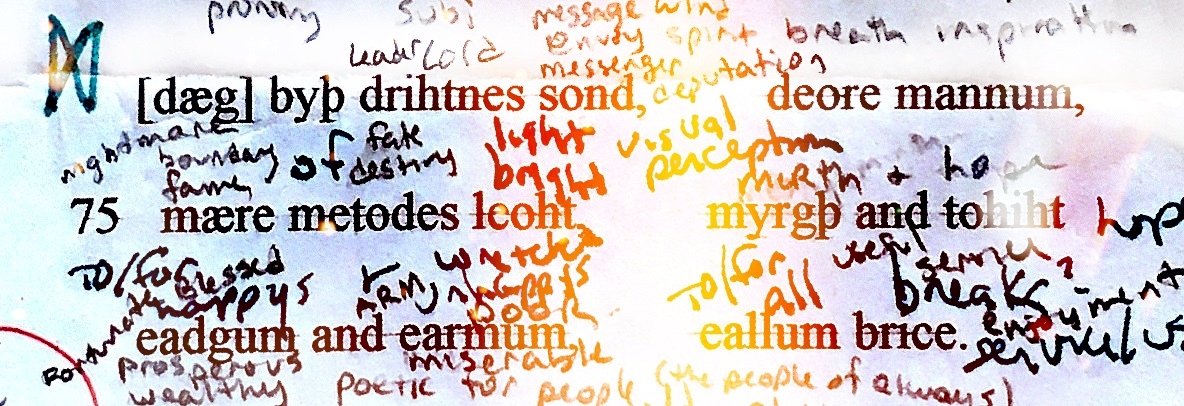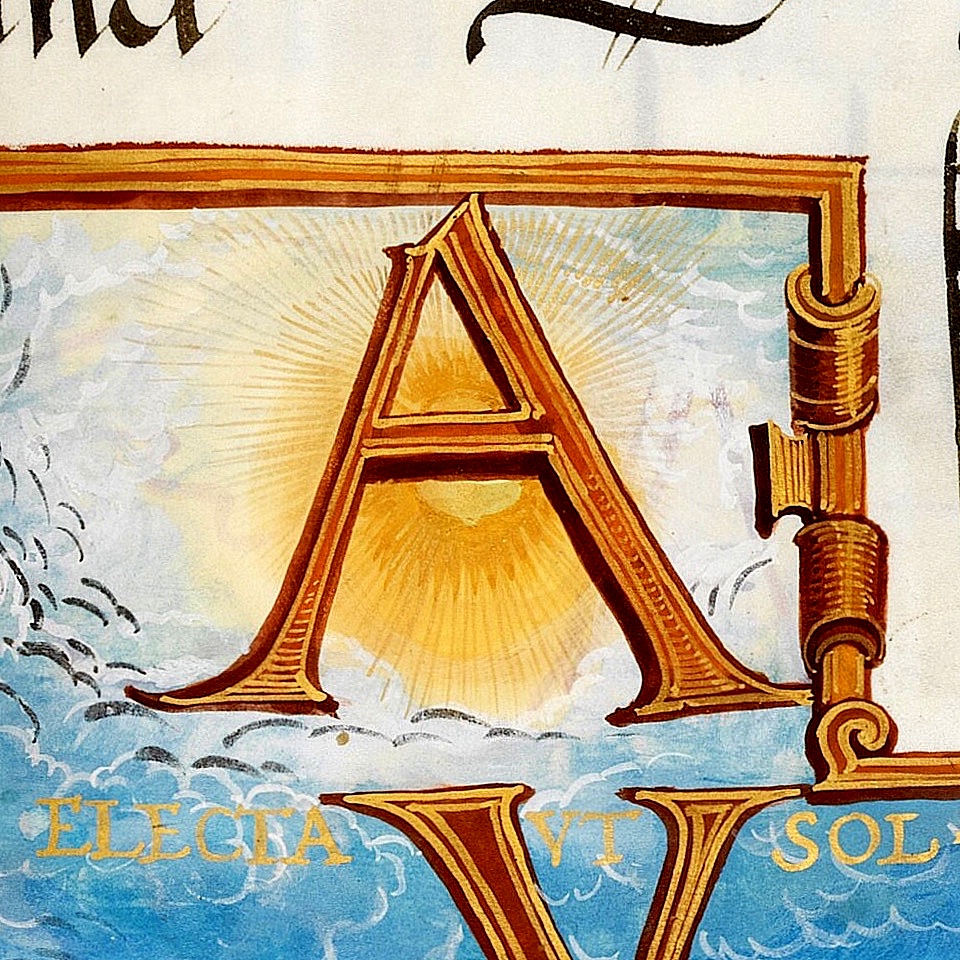 The word drihtnes appears twice in the rune poem, here and in stanza one, feoh, wealth. It means God, but in the sense of God as a lord, God the leader, the one in charge. God has other jobs: judge, executioner, advisor, muse, physician, daycare, security, human resources, accounting, project manager. All the jobs really, God is busy. Further down the CV God is also the metodes which sometimes gets translated as measurer. Metlic is something that is measurable, a metrap is a measuring rope for a field, or a sounding line to measure depth at sea. Metod is used in poetry mostly, where it means fate, destiny, and death, especially in earliest Old English, and the Rune Poem is early. God measures out our fate. God sizes us up and calculates our destiny.
The word drihtnes appears twice in the rune poem, here and in stanza one, feoh, wealth. It means God, but in the sense of God as a lord, God the leader, the one in charge. God has other jobs: judge, executioner, advisor, muse, physician, daycare, security, human resources, accounting, project manager. All the jobs really, God is busy. Further down the CV God is also the metodes which sometimes gets translated as measurer. Metlic is something that is measurable, a metrap is a measuring rope for a field, or a sounding line to measure depth at sea. Metod is used in poetry mostly, where it means fate, destiny, and death, especially in earliest Old English, and the Rune Poem is early. God measures out our fate. God sizes us up and calculates our destiny.
Drihtnes isn’t the only repetition going on here, we’ve seen tohiht (hope) and eadgum before. They were together in the same half line at the close of Os, the God stanza. Ead is poetic way to describe the prosperity that comes from fate. It does mean wealth and abundance, yes, but it’s more the emotional experience of a fate that allows you to be free from need. In the Os stanza it’s eadnys, the feeling of ead-ness; in the Dæg stanza ead refers to the people feeling the eadnys: the daylight is for the eadgum, the fortunate. Who else is the daylight for? The earmum, the unfortunate, the people feeling their own wretchedness, the ones fate frowns upon. This is another time the Rune Poem shines some light on the difference between those who have and those who don’t, and in this case what makes people the same. In the clear light of day, this stanza says, everybody feels uplifted by a bit of sunshine. Doesn’t matter who.
What does matter here is that this sunlight is itself a message sent by God, sond, well, it is the message and the messenger both. This is some important light. It reveals and is revealed. I translate mære metodes leoht as the light of fate’s fame. I am unsatisfied. I want this line to say a daylit dream of destiny, for the triple alliteration and the beautiful fit for the sense of what’s going on here. But the answer to this stanza’s riddle is day, as in daylight, and it’s just a bad riddle that speaks its answer right out loud for God and everybody to hear. Also, mære can mean dream sometimes, it lives on in the word nightmare, but it means fame more often, as it does in the Ur stanza to describe a famous moor-stepper. It means fame here too: everybody knows the illumination of fate. Good fortune shines a spotlight for all to see. So in the clear light of day there will be no daylit dream of destiny for this stanza, as much as I want one. Alliteration always gets lost in translation. The light of fate’s fame is equally beautiful, just about, and I want to use both. I almost did. But Old English poets are uniquely unwordy people, so I’ll sing to their tune.



